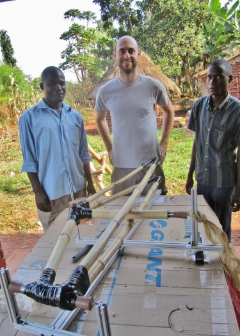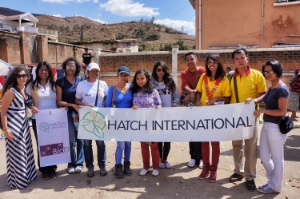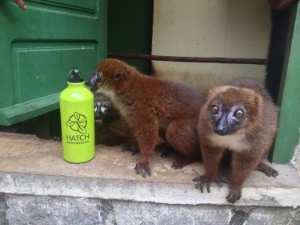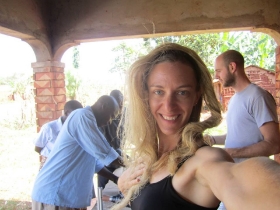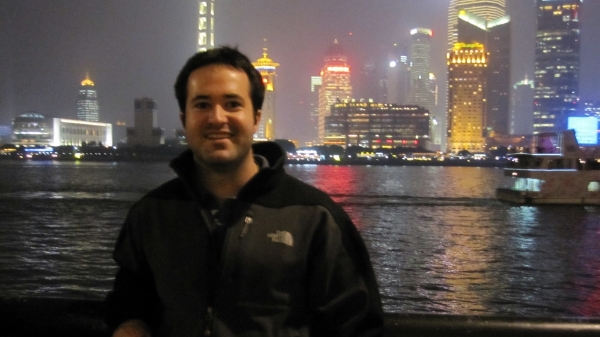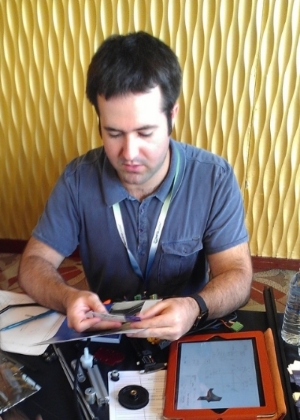
A few weeks ago, I was fortunate to have the opportunity to attend the Ashoka Future Forum (AFF) on behalf of D2International, a social impact group I am a part of through my day job at Deloitte Consulting, LLP. As soon as I walked into the conference at the beautiful Newseum in Washington, DC, I immediately felt a rush of excitement, hope, and a strong feeling of community. From a dynamic panel featuring Ai-jen Poo, Todd Park, and Sara Horowitz, which resulted in exciting realizations by the speakers for potential collaboration across issue areas and movements, to an interactive workshop on human-centered design by the Stanford D School, to presentations from Ashoka’s youngest and brightest changemakers, AFF filled me with inspiration and motivation and reinvigorated the entrepreneur inside of me. So many of the themes that were addressed in the forum align with what the Hatch International team fundamentally believes in and has been working on tirelessly this year: Infusing empathy into solution development, a “team of teams” approach, community partnerships, and co-creation to drive systemic and transformative social change.

So, what do all of these buzzwords mean? Why was every panel and workshop at AFF so focused on themes such as empathy and co-creation? What is compelling so many thought leaders to come together and discuss how to team across sectors? We are now seeing a global movement and broader recognition that these approaches and themes are the foundation for systemic social impact. AFF’s participants and speakers brought to light the importance and dire need for communities and thought leaders to organize differently than they have in the past. In order for there to be systemic change, a community’s changemakers (individuals, thought leaders, and organizations) need to align around a social issue to co-create empathetic and innovative solutions for collective social impact. As our society is increasingly seeing progress as a result of innovation across sectors, it is critical for all of us to realize we are part of one community and system for change. In other words, all of us are key players in this global ecosystem, and all of us need to work together to innovate and create systemic social change.
After hearing some of the social impact sector’s greatest leaders provide such valuable insights into how we can be part of creating a better and stronger foundation for social change, I was inspired to reflect on how I can more effectively infuse some of these thoughts into the work the Hatch team is doing here in Washington, DC, to support early-stage social entrepreneurs, such as the three we are currently incubating (Bandha Bikes, BioD, and Solaii). As an organization which fundamentally believes in providing support to aspiring and budding entrepreneurs, events such as these inspire me to continuously reflect on how Hatch can help those with innovative ideas but who need proper guidance and resources to help “hatch” them into viable social ventures.

Since our entrepreneurs were lacking fundamental support from their local community, it occurred to us that Hatch could improve as an organization and more effectively meet its mission by partnering with other organizations in the DC area to provide that critical support. But how can public, private, and social sector organizations and individuals come together as a larger community to truly affect systemic change for social entrepreneurs? Can DC become a Silicon Valley for social enterprise?
We think it can. Hatch has spent the past several months reaching out to local organizations across sectors, including consulting firms, law firms, productivity spaces, and nonprofits, to help fuel a more aligned and supportive ecosystem that early-stage social entrepreneurs can turn to in order to effectively build innovative social ventures from the ground up. Hatch is working to help our key partners align to a common mission and vision of supporting idea-/early-stage social entrepreneurs. We have made empathy central to our discussions, identified specific alignment opportunities that will support organizational missions and value chains, and most importantly, have received acknowledgement of strong leadership, engagement, and a willingness to co-create from our partners.
I challenge and call upon all of you in the greater Washington, DC, area to come together to create productive partnerships, and to identify alignment opportunities that will further your mission while creating a unique environment that will breed innovation and progress. I truly believe we can help build an ecosystem for changemakers that will make Washington, DC, the Silicon Valley for social entrepreneurship, and hope you will be a part of this movement.
This blog post was written by Shivangi Khargonekar, Executive Director of Hatch International. If you or your organization/company are interested in being part of this ecosystem for changemakers please email her at [email protected].











